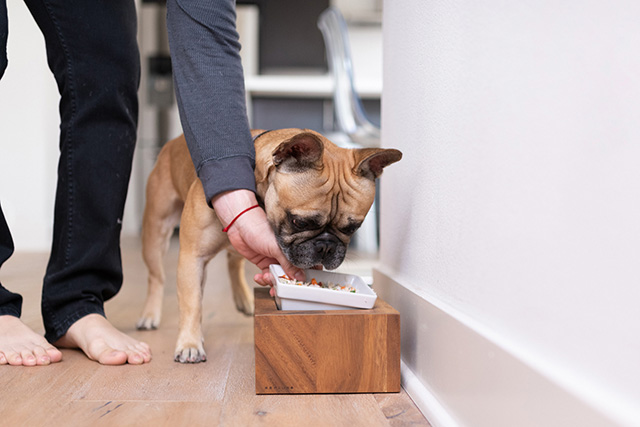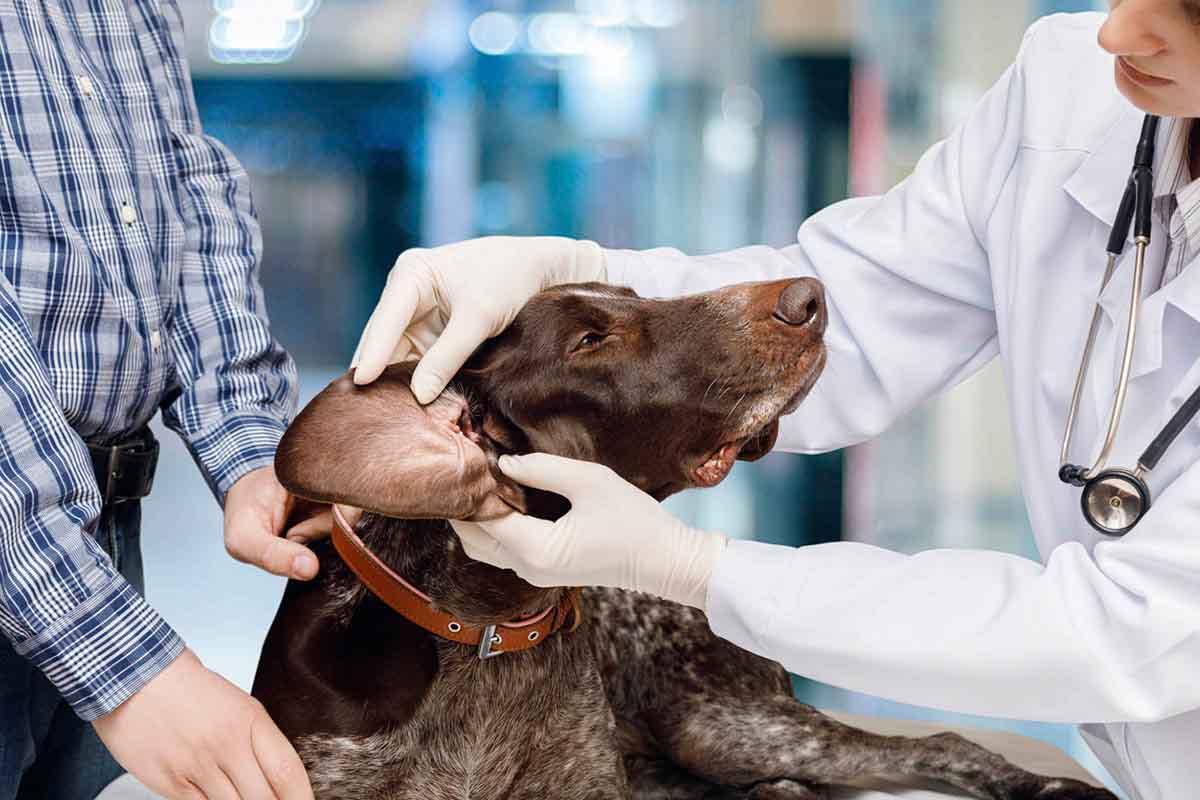Healthy Gut, Healthy Pup: Probiotics for Dogs
Learn all about probiotics and how they can be beneficial for your pup's overall health and digestive tract.
In humans, the gut is often referred to as the second brain. Medical experts are finding out more and more just how important the gut is for a person’s overall health. Is the same thing true for your best friend?
In fact, research into the canine microbiome has shown that it’s vital for metabolism, a healthy immune system, and for protection against certain pathogens. In this way, a healthy gut contributes either directly or indirectly to most of the physiological functions of your dog.
Given the health benefits of the beneficial bacteria that live in the dog’s gut, would it then be beneficial for your dog to take probiotics? Let’s take a look at just how they can contribute to your buddy’s gut health.
Benefits of Probiotics for Dogs
We’ve become accustomed to thinking of bacteria as something to avoid, something that causes infections. But there are actually good bacteria. The gut bacteria are vital for good digestive health. Let’s take a look at how probiotics can benefit your dog’s health.
Digestive Health
Probiotics assist in the digestion and absorption of essential nutrients by helping to normalize the conditions in your dog’s intestinal tract. These digestive enzymes work to change the local acidity of the digestive tract and can help break down nutrients.
Probiotics also inhibit the growth of harmful bacteria like Salmonella by competing for the same nutrients and effectively starving the bad bacteria. Getting rid of bad bacteria can even help treat his bad breath and improve the quality of his poop!
It’s clear that healthy gut flora is vital for your dog’s digestive system, but what else do these ‘good’ microorganisms do?
Mental Health Benefits of Probiotics
Bacteria contribute to the digestion of food, and they also play an important role in healthy brain function and overall dog health. In fact, certain bacteria, namely Bifidobacterium longum, may help decrease stress and improve your doggie’s mental well-being.
Dogs who took supplements containing this important bacterium were less likely to bark, jump, spin, or pace in stressful situations, and they were more open to exploring new environments. This is one small way in which maintaining the proper microorganisms in the gut can keep your dog healthy.
Immune Health
The immune function of your dog’s gastrointestinal tract accounts for approximately 70% of his overall immune system. By ensuring the proper bacteria are present in your dog’s gut, you can help give your dog nutritional support that may help fight off potential infections.
In this way, gut flora also can counter problems like urinary tract infections. It can also help with other digestive issues like a sensitive stomach. Moreover, probiotics have their own antioxidants, which means they can help your dog’s body to fight off his cancerous cells.
For this reason, many veterinarians and animal health advocates tout the benefits of probiotics. Here are several conditions that pet probiotics can potentially support:
- Allergy conditions
- Anxiety and stress
- Bad breath
- Bloating
- Coat quality
- Constipation
- Dog diarrhea
- Immune system disorders
- Intestinal inflammation
- Irritable bowel syndrome
- Liver disease
- Obesity
- Skin disorders
- Upset stomach
- Urinary tract infections
That’s why many loving pet parents are giving their dogs probiotic supplements, but which ones should you choose?
What Daily Probiotics Should You Feed Your Dog?
You might be thinking that since you take probiotics, you can just share yours with your best buddy. But human probiotics are not necessarily the best probiotics for dogs.
They won’t harm your dog, but they also won’t provide him with all the benefits that dog probiotics will. Additionally, you want to give him the strains of probiotics that have been tested and found to be safe in dogs.
Here is a list of the probiotic strains of bacteria you should look for and how each can benefit your pooch.
- Bacillus coagulans improves the bowel pattern, shortens diarrheal episodes and reduces the frequency, eases abdominal pain, and helps with bloating
- Bacillus subtilis improves both fat and carbohydrate digestibility in dogs’ guts, which can be particularly helpful if your doggie likes trash
- Bifidobacterium animalis (strain AHC7) helps with acute diarrhea
- Bifidobacterium bifidum helps break down dog food, absorb nutrients, and fight off the bad bacteria that might cause diseases
- Bifidobacterium longum (BL999) helps reduce anxiety
- Enterococcus faecium (strain SF68) reduces intestinal inflammation and may help with antibiotic-caused diarrhea
- Lactobacillus acidophilus improves stool quality and frequency
- Lactobacillus casei helps balance the gut microbiome, can improve gastrointestinal dysfunction, may help prevent infection and cancer, and works to modulate inflammatory and immune responses
- Lactobacillus plantarum helps with digestion, nutrient absorption, and fending off bad bacteria
- Lactobacillus rhamnosus (strain LGG) may be effective for dog diarrhea since it has been shown to be beneficial for humans with diarrhea; specifically, it reduces the frequency and duration of diarrhea and helps with healthcare-associated diarrhea as well as diarrhea associated with specific viruses
It’s important to check the label of your probiotics to ensure they contain the best strains of bacteria for your dog. Additionally, you want to ensure the CFUs are appropriate.
Probiotics are measured in colony-forming units or CFUs. Currently, it’s recommended that dogs get 1 – 10 billion total CFUs per day. The label should say what the CFUs are for the blend of probiotics you’re giving.
How Do You Give Your Dog Probiotics?
There are several ways you can administer dog supplements to your pooch. Some dog foods and treats already have probiotics added to the formula. That’s the easiest way to get your dog to eat them.
If that doesn’t work for you, you can find probiotic soft chews for dogs who prefer chewable treats, probiotic powder for those dogs who are good at finding hidden pills, and even probiotic bites. Some of these supplements come in different flavors, like chicken flavor or beef flavor.
You can find these digestive enzymes in various forms, making it easier than ever to find something that works for your dog. As far as feeding frequency goes, you can give your dog probiotics daily to maintain his long-term health.
You can also give probiotics proactively to help reduce stress. For example, if you know you’re going to have to board your pooch while you go on vacation or travel for business, you can begin giving probiotics several days in advance to boost his immune system and reduce his stress.
What is the Difference Between Probiotics and Prebiotics?
Prebiotics, such as inulin, are fibers that probiotics feed upon. Thus, prebiotics actually help probiotics to grow and be healthy. Thus, they are a necessary part of maintaining a healthy microbiome.
Prebiotics, like probiotics, can be given as a supplement or as part of their dog food.
Healthy Dogs Begin with Healthy Food

We’re passionate about dog health. We offer probiotic supplements and treats which are high in natural prebiotics for your dog.
What’s more, all of our dog foods are filler-free contain wholesome, fresh ingredients to maintain your dog’s overall health. We are dedicated to using evidence-based research to create the healthiest diet for your beloved pets. It’s what we feed our own dogs.
JFFD has assembled a team of veterinary nutritionists to develop nutritionally balanced, fresh dog food that contains ingredients you can see and pronounce. You won’t find any hidden, dangerous chemical preservatives or low-quality ingredients in our dog food.
This content is for informational use only and does not replace professional nutrition and/or medical advice, diagnosis, or treatment. It is not a substitute for and should not be relied upon for specific nutrition and/or medical recommendations. Please talk with your veterinarian about any questions or concerns.
“The Power of Probiotics.” 2022. Cornell University College of Veterinary Medicine. 2022. https://www.vet.cornell.edu/departments-centers-and-institutes/riney-canine-health-center/canine-health-information/power-probiotics.
Pilla, Rachel, and Jan S. Suchodolski. 2020. “The Role of the Canine Gut Microbiome and Metabolome in Health and Gastrointestinal Disease.” Frontiers in Veterinary Science 6 (January). https://doi.org/10.3389/fvets.2019.00498.








